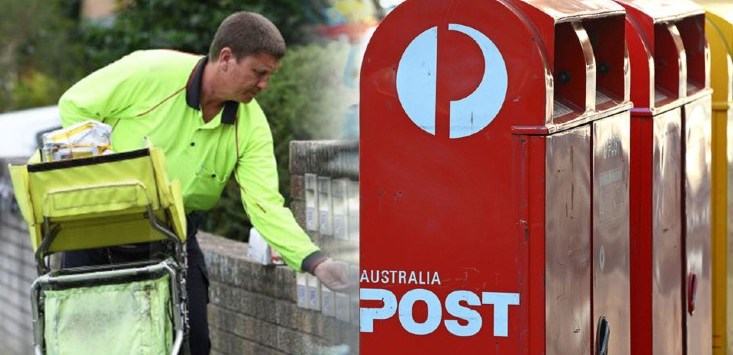
Following delays and interruptions to Australia Post’s service since the start of the pandemic, the company is now receiving backlash for auctioning off customers items that didn’t quite make it to their doorsteps.
It is more important than ever for small businesses to take extra measures to ensure parcels are delivered properly. With the majority of Australians shopping online, particularly during the pandemic, consumers have high expectations for speedy next-day deliveries, package quality and easy returns policies.
While shipping is a vital component for any small business, getting the right methods of distribution, from returns policies to tracking tools will help a business gain control of its shipping.
Here are six precautions you can take before sending an item to make sure it is delivered straight to your recipient’s front door.
Six precautions to take before sending a parcel:
- Secure packaging for your parcels
- Ensure correct delivery and returns addresses
- Include all necessary documents
- Get transit insurance for parcels
- Ask for an alternative ‘safe place’ for parcels
- Do not attempt to send prohibited items
1. Secure packaging for your parcels
Even if your parcels won’t be travelling on a cargo plane to be shipped internationally, it will still be processed by at least two depots and placed on conveyor belts. Therefore, ensuring that the packaging is secure is very important.
Whilst damage to your parcel on any route of delivery is very unlikely, it is always worth packaging your items with extra precaution.
Packaging items in bubble wrap within sturdy cardboard boxes, tightly shut with packing tape is the most secure way to send something off.
2. Ensure correct delivery and returns addresses
Whilst it may seem like an obvious one, making sure you don’t make a typo when printing your delivery and returns addresses will save you a whole lot of hassle in the long run.
Make sure you clearly and correctly print the address on a visible area of the package, ensuring you have covered any previous address marks so the courier service won’t get confused.
For different countries abroad, the format of an address is often different. Therefore, it is always worth double-checking with your recipient or sender to make sure the address is correct and ready to be printed.
3. Include all necessary documents
The good thing about shipping is you can provide customers with all the documents and labels you need free of charge.
When sending parcels internationally or locally, ensuring all documents are included in the packaging is crucially important. Not only does it provide the customer with a guarantee for their items, but also helps with any lost deliveries.
Also make sure forms are filled in correctly, so they aren’t turned away when checked at the depot or customs.
4. Get transit insurance for parcels
Transit cover will protect your items from loss or damage as standard. However, for items of sentimental value, it is worth taking out extra insurance.
Also known as a ‘Goods in Transit’ cover, it acts as a door-to-door insurance policy that protects the items from the point of collection to the point of delivery onto the doorstep of your recipient.
For small businesses, transit cover is an ideal way of protection items until they reach a customer’s doorstep, especially if a shipment is lost or damaged during distribution. This will not only cover the cost of items but will provide reassurance for customers.”
5. Ask for an alternative ‘safe place’ for parcels
For customers who may not be able to receive their parcel at the estimated time of delivery, it is always advisable for them to list a ‘safe place’ or a ‘trusted neighbour’ for their delivery.
On the customer’s tracking, allow them to add a safe place option before dispatch so you are able to redirect the parcel. For this, it is easiest to get in touch with the recipient directly to ask if this alternative delivery option is necessary.
To know the full whereabouts of your parcels, having a tracking service is extremely helpful. For example, Interparcel offers full tracking services for multiple couriers, being integrated with the top shopping cart platforms, to help streamline your parcel shipping.
6. Do not attempt to send prohibited items
And most importantly, do not attempt to send prohibited items. These are items such as weapons, knives, keys, chemical/solvents, e-cigarettes and dangerous goods. The full list of items can be found here.
If you do send something from this list, whether it be accidentally or on purpose, your parcel may be refused and returned to you or even destroyed.
Nick Drewe is a money-saving expert at Australian-based discounts platform, Wethrift.
Handpicked for you

Australia Post pauses parcel pickups in Melbourne for five days



COMMENTS
SmartCompany is committed to hosting lively discussions. Help us keep the conversation useful, interesting and welcoming. We aim to publish comments quickly in the interest of promoting robust conversation, but we’re a small team and we deploy filters to protect against legal risk. Occasionally your comment may be held up while it is being reviewed, but we’re working as fast as we can to keep the conversation rolling.
The SmartCompany comment section is members-only content. Please subscribe to leave a comment.
The SmartCompany comment section is members-only content. Please login to leave a comment.